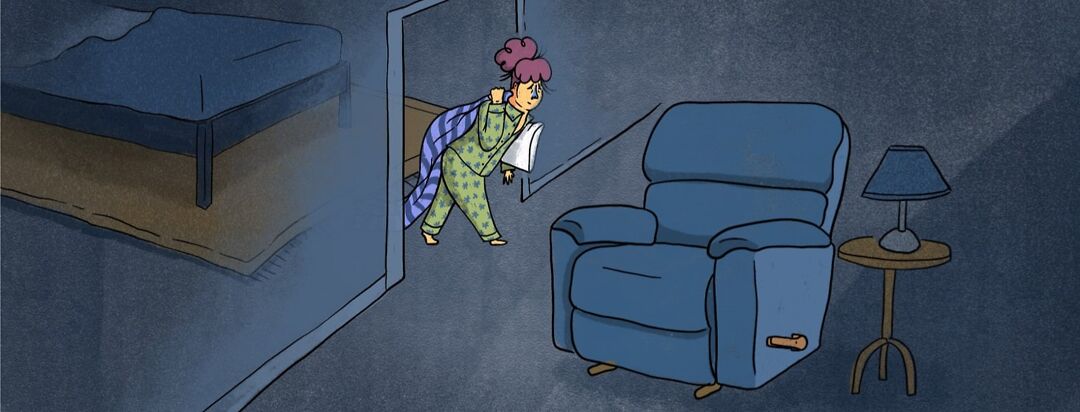Succeeding at Cognitive Behavioral Therapy for Insomnia (CBT-I)
If you clicked on this article, you probably already know about cognitive behavioral therapy for insomnia (CBT-I; if not, start here). You have probably already heard that it is a highly effective treatment for insomnia disorder.
But what if you struggle with CBT-I?
CBT-I isn't easy
CBT-I techniques are straightforward, and, generally, easy to understand. But that does not mean they are always easy to put into practice. My patients tend to run into the same few challenges over and over again. If these challenges sound familiar, try some of the "tricks of the trade."
Challenge 1: You keep dozing off accidentally
A big part of CBT-I is to keep a regular sleep schedule and not sleep outside of that window. So, what can you do if you find yourself dozing off accidentally? Try these tips:
- Notice if there is a trend to when you are likely to fall asleep. Is it right after a big lunch? While watching TV on the couch? If you can identify a trend, you can change your behavior to avoid dozing.
- You may be most likely to doze in the post-lunch, "afternoon slump." If so, plan to be active during that time. Even taking a short walk can boost your energy enough to get you through that slump.
- Sit on uncomfortable furniture if you doze off while watching TV or reading. You know that chair you have that is really cute but not actually comfortable? Sit in that one. Or stand up.
Challenge 2: It is hard to practice stimulus control (AKA, get out of bed if you are not asleep)
The last thing most of us want to do is get out of bed once we have snuggled in under the covers. But getting out of bed if you are not asleep is one of the most effective interventions for insomnia. You make it (a little) easier by:
- Setting up a "relaxation station" that is comfortable and welcoming. Have your favorite book or earbuds waiting for you. Make the spot appealing with blankets and soft lighting. The more comfortable your spot is, the more likely you are to get up and use it.
- Reminding yourself that "this is not forever." Getting out of bed is annoying, but it usually doesn't take very long to work. You will likely find yourself needing to get out of bed much less frequently within a couple of weeks. Try to remember that this is meant to be a short-term inconvenience.
- If you have physical or cognitive limitations that make it unsafe for you to get out of bed in the middle of the night, talk with your provider for other ideas. Safety first!
Challenge 3: You have a bed partner
Getting and staying out of bed is hard enough when you just have to worry about yourself. But what can you do if you have a roommate or bed partner you don't want to disturb?
- Know that your provider wants you to have a good relationship with your partner. We don't want you to give up your intimate time together. Good relationships can only help you sleep better.
- Move "together time" outside of the bedroom. Watch TV or chat about your day in a different room.
- Talk to your partner. Many of us assume that our partner will be annoyed by us getting out of bed in the middle of the night or keeping a different bedtime. But they have probably already been annoyed or concerned with your sleeplessness. Most times partners and roommates are eager to help you find a solution, even if it is inconvenient for them in the short-term.
Don't give up!
If you have run into challenges with CBT-I, don't give up! Even the most challenging obstacles may have a simple solution (or 2). Your provider can help you think outside the box about how to make CBT-I work for you.
Have you run into these challenges before? Have you found a solution that works for you? Please share with us in this forum.

Join the conversation